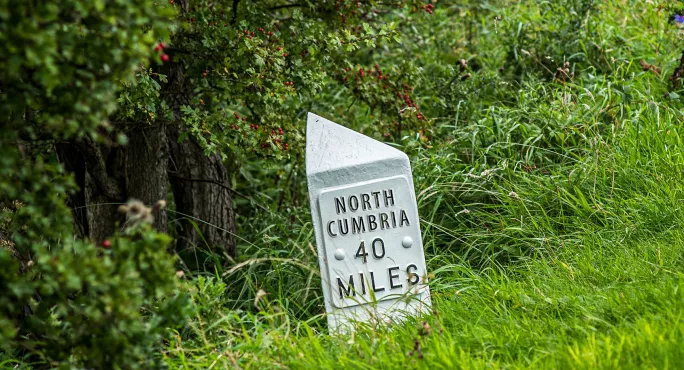38 years of classroom teaching - and counting

Do you remember what you were doing in September 1986? It’s possible you were at nursery or maybe you weren’t even born.
I sometimes forget I’m pushing 60 and old enough to be your mum - or even your nan. Still, I haven’t forgotten September 1986; it was the month I began my PGCE (ECT in modern parlance) to become a secondary English teacher.
I had no idea about education. Obviously, I’d had an education but I hadn’t paid much attention. Most of my school hours were absorbed learning the lyrics to Gordon is a Moron and showing off.
Doubts about becoming a teacher
Unencumbered by any actual knowledge about teaching and learning, I harboured opposing fantasies: the first was being cool Ms L, facing a class of beaming children hanging on my every word.
Meanwhile, I had this nightmarish vision of a feral mob cornering me and locking me in a stock cupboard while they trashed the classroom - ties around their heads - firing ink pellets and setting fire to the desks. I’d only escape when a furious headteacher burst in and terminated my employment.
Fortunately, (well, for me, anyway) almost 40 years on, I’m still here. From the safety of near retirement, it’s difficult not to look back on my career bathed in a rosy haze. Teaching is difficult, it’s complicated, and any initiative that suggests it can be simplified is usually, well, nonsense.
- Teacher wellbeing: “I love teaching, but it’s a soul-eating profession”
- Recruitment: How England lost its teachers - and how it can get them back
- Teaching careers: Finding the joy in teaching every day
In fact, since 1986 education has changed radically: that was the first year of GCSEs, there was no Ofsted, no national curriculum, no league tables, no Inset, no three-part lesson, no projectors, no mobile phones, no notion that a child’s future could be predicted by looking at a spreadsheet, and hardly any photocopying unless you got on the good side of the office manager.
Meanwhile, the pedagogies and policies that have underpinned what schools are supposed to focus on have see-sawed from one extreme to the other and back again.
Tough days, proud moments
This has made it a hard gig at times. I’ve had days when I’ve cried on the way to work and occupied the journey home drafting a bitter letter of resignation in my head.
There have been those CPD sessions when I’ve muttered and grumbled, “Yeah…we called that flexible learning in the 90s...” and many times I’ve responded ungraciously to comments about my professional longevity, pointing out that I’d have got less for numerous crimes.
But overall, I’ve loved it. Working with teenagers gives me a purpose. I teach English; the luxury of discussing poetry, plays and novels - I mean, come on, it’s fiction, it’s all made up - has been a delight.
Who doesn’t want to be there when a student cottons on to subordinate clauses after years of trying? Or hear the sudden intake of breath when a class of 15-year-olds realise Mr Darcy has been in love with Lizzie Bennett all along?
Or when it dawns on them that Charles Causley’s Eden Rock is paradise and his parents are...well... “they’re dead, aren’t they miss?”
People and problems
What’s strange is, for me, kids have changed very little. They continue to be funny, boisterous, wayward, daft, reluctant to do their homework, yet they worry about disappointing their families.
That wild energy, the sense that every day anything could happen; that by 8.30am 1,500 young people will cross the threshold bringing with them their obsessions, their prejudices, their moods and their fears.
And somehow, we have to get them to use semi-colons accurately and be nice to each other. It’s a challenge, but it’s a challenge that holds as many joys as frustrations.
It’s not just children either that have been a main factor in me staying in the job for so long.
One of the positives of a long-established career is seeing young colleagues - sometimes ex-pupils - taking their first uncertain steps in a career, going on to become skilled and powerful practitioners.
Adaptations and reflections
I’ve been lucky. Since 1998 I’ve taught in rural Cumbria. This is my community and every year students come up to me and ask if I remember their mam - or their dad or auntie or uncle. I usually do.
I’ve also been lucky to work with a leadership team who’ve supported me, especially in recent years, when family crisis and chronic arthritis have threatened to end my working life.
The thoughtful application of reasonable adjustment has kept me going. Nothing makes a cranky old mare feel valued like a ground-floor classroom and an accessible parking space.
I’ll likely retire when I’ve done 40 years but I’m not counting down the years. I want the next two years to be the culmination of decades of experience. I’d like to say my students and colleagues could benefit from my accrued wisdom but that’s stretching it.
At the very least, I can share my mistakes, my bag of tricks and be honest enough to acknowledge it’s never going to be easy - but it’s definitely worth it!
Sarah Ledger is an English teacher and pastoral leader teaching in a secondary school in Cumbria
For the latest education news and analysis delivered every weekday morning, sign up for the Tes Daily newsletter
You need a Tes subscription to read this article
Subscribe now to read this article and get other subscriber-only content:
- Unlimited access to all Tes magazine content
- Exclusive subscriber-only stories
- Award-winning email newsletters
Already a subscriber? Log in
You need a subscription to read this article
Subscribe now to read this article and get other subscriber-only content, including:
- Unlimited access to all Tes magazine content
- Exclusive subscriber-only stories
- Award-winning email newsletters
topics in this article



